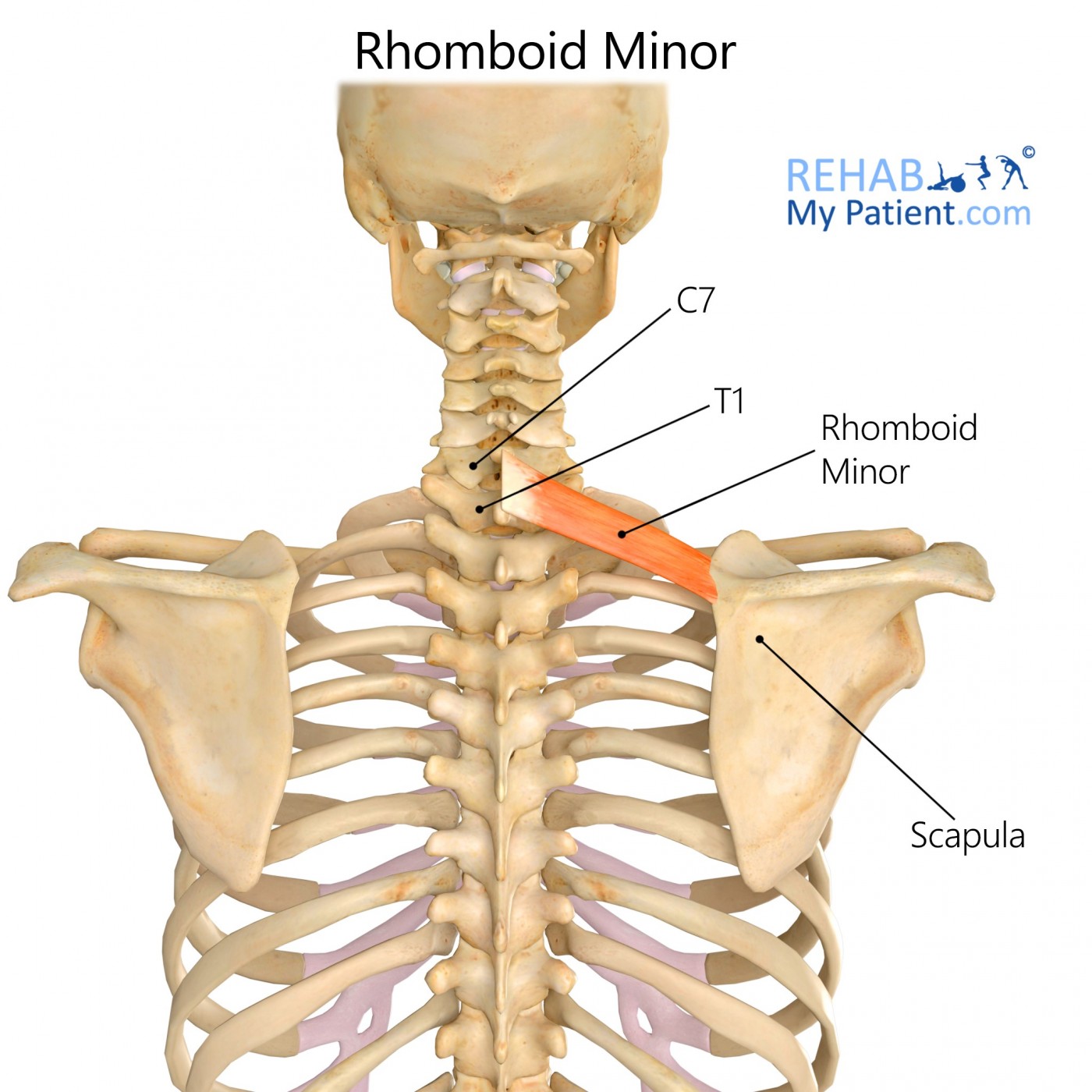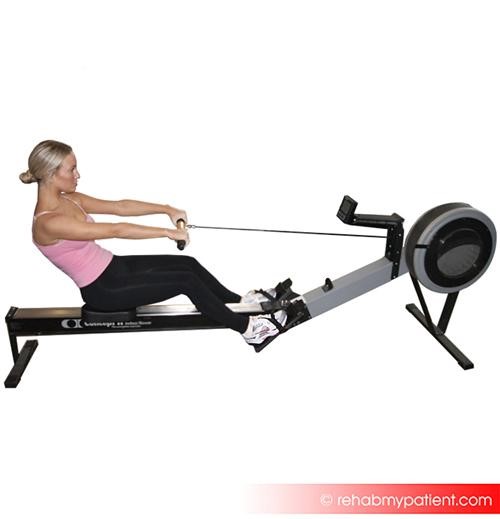Rhomboid Minor
Posted on 28th Jul 2020 / Published in: Shoulder

General information
Rhomboid minor is a small muscle nestled on the back connecting with the scapula and the vertebrae of the spinal column. Located superior to the rhomboid major and inferior to the levator scapulae, it works with the rhomboid major to keep the scapula pressed into the thoracic wall. It is nestled deep within the trapezius, but it is superficial to the long muscles of the spine.
Literal meaning
Lesser shape.
Interesting information
Rhomboid injuries tend to be quite painful. For some individuals, they have to undergo physical therapy after an injury to the Rhomboid muscle. Injury to these muscles causes an intense amount of upper back pain. Common injuries to this muscle are the direct result of repetitive motions, especially those that are over the head using the shoulders and arms. Other motions that can cause an injury to this muscle are rowing, or carrying a heavy backpack, especially when the backpack load is carried on one side over the other.
Origin
Lower end in the nuchal ligament and spinous processes for C7 and T1.
Insertion
Medial margin for the scapula located between the base of the superior angle and the scapular spine.
Function
Abduction of the scapula.
Elevation of the scapula.
Stabilization of the scapula and the association of the glenoid cavity for improving the functional efficiency of muscles that work together in the shoulder joint.
Nerve supply
Dorsal scapular nerve C4-C5.
Blood supply
Dorsal scapular artery.
Transverse cervical artery.
Upper posterior intercostal arteries.

Relevant research
Rhomboid muscles were only discovered to be novel proteases back in 2001, but the progress on understanding the new family of proteases has increased rapidly. They are one of the best characterized mysterious enzymes that cleave transmembrane domains found within the lipid bilayer. The biochemical analysis of any solubilized rhomboids and high-resolution crystal structures have led to an in-depth insight into the enzymology. Long-standing questions about the manner in which it is possible for a water-requiring proteolytic reaction have occurred within the lipid bilayer are now able to be answered for the rhomboids. Intramembrane proteases have made the transition from heretical outsiders to that of novel enzymes.
Lemberg MK, Freeman M. Cutting proteins within lipid bilayers: rhomboid structure and mechanism. Mol Cell. 2007;28(6):930-940. doi:10.1016/j.molcel.2007.12.003
Rhomboid minor exercises
Seated row
Using a seated row machine or a cable pulley, one side of the back may be worked at a time. Position the handles level to the shoulders and hold the handles with the arms stretched outward. Wing the shoulder blade as much as possible. Contract the rhomboid muscles to pull the handles toward the shoulder. Hold for five seconds. Straighten the arms and repeat for 15 repetitions. Increase the repetitions as strength improves in the muscles.

Sign UP
Sign up for your free trial now!
Get started with Rehab My Patient today and revolutionize your exercise prescription process for effective rehabilitation.
Start Your 14-Day Free Trial